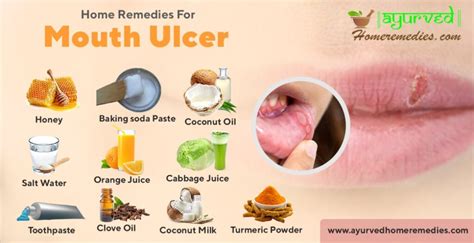How to Treat Mouth Ulcers: A Comprehensive Guide
Mouth ulcers, also known as aphthous ulcers or canker sores, are small, painful sores that develop inside the mouth. While usually harmless and self-limiting, they can be incredibly uncomfortable, impacting eating, drinking, and even speaking. This comprehensive guide will walk you through various treatment options for mouth ulcers, helping you find relief and manage future occurrences.
Understanding Mouth Ulcers
Before diving into treatments, let's understand what causes these pesky sores. While the exact cause remains unknown, several factors are believed to contribute:
- Stress: Stress is a significant trigger for many individuals.
- Nutritional Deficiencies: Lack of certain vitamins and minerals, particularly iron, vitamin B12, and folic acid, can increase susceptibility.
- Trauma: Accidental biting, brushing too vigorously, or dental work can irritate the mouth lining.
- Hormonal Changes: Fluctuations in hormones, particularly during menstruation, can contribute to outbreaks.
- Certain Medical Conditions: Some underlying medical conditions may be associated with increased mouth ulcer frequency.
Home Remedies for Mouth Ulcer Relief
Many effective home remedies can provide relief from mouth ulcer pain and promote healing. These are often the first line of defense:
1. Saltwater Rinse:
A simple and effective solution. Dissolve ½ to 1 teaspoon of salt in a glass of warm water. Swish the solution around your mouth for 30-60 seconds, then spit it out. Repeat several times a day. The salt helps to reduce inflammation and kill bacteria.
2. Ice Cube:
Numbs the pain and reduces inflammation. Applying a clean ice cube directly to the ulcer for a few minutes can provide temporary pain relief. Be careful not to hold the ice cube in place for too long to avoid tissue damage.
3. Aloe Vera Gel:
Soothes and promotes healing. Apply a small amount of pure aloe vera gel directly to the ulcer several times a day. Its anti-inflammatory properties can help reduce pain and accelerate healing.
4. Honey:
Natural antibacterial and healing properties. Applying a small amount of honey directly to the ulcer can help soothe the pain and promote healing due to its antibacterial and anti-inflammatory properties.
5. Milk of Magnesia:
Neutralizes acidity and soothes irritation. Applying a small amount of milk of magnesia to the ulcer with a cotton swab can provide relief from pain and inflammation.
Over-the-Counter Treatments
If home remedies aren't providing sufficient relief, several over-the-counter medications can help:
- Orabase or similar oral pain relief gels: These gels create a protective barrier over the ulcer, reducing pain and promoting healing.
- Anesthetic mouthwashes: These can temporarily numb the area, providing pain relief. However, these should not be used long-term.
- Topical corticosteroids: Available in various forms, these medications reduce inflammation and speed up healing. Always consult a dentist or doctor before using corticosteroids.
When to See a Doctor
While most mouth ulcers heal within a week or two, consult a doctor or dentist if:
- Ulcers are large or unusually painful.
- Ulcers persist for more than two weeks.
- You experience frequent or recurrent outbreaks.
- Ulcers are accompanied by fever, fatigue, or other systemic symptoms.
- You have difficulty swallowing or breathing.
A medical professional can determine the underlying cause and recommend appropriate treatment if necessary.
Preventing Mouth Ulcers
While you can't always prevent mouth ulcers, adopting certain lifestyle changes can reduce your risk:
- Manage stress levels: Practice stress-reducing techniques like yoga, meditation, or deep breathing exercises.
- Maintain a balanced diet: Ensure you're getting enough vitamins and minerals, especially iron, vitamin B12, and folic acid.
- Practice good oral hygiene: Brush and floss your teeth regularly, and use a soft-bristled toothbrush to avoid irritating your gums.
- Avoid acidic foods and drinks: These can irritate the mouth lining and worsen existing ulcers.
By understanding the causes and employing the right treatments, you can effectively manage mouth ulcers and minimize their impact on your daily life. Remember that prevention is key, so maintaining good oral hygiene and a healthy lifestyle is crucial.
